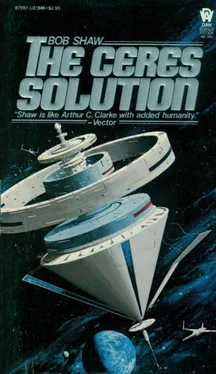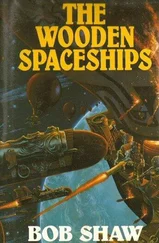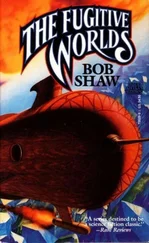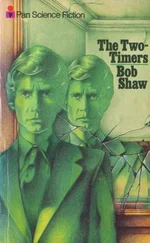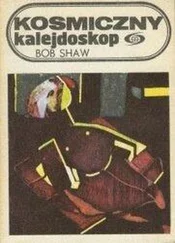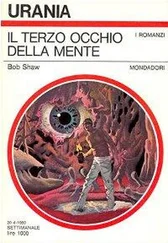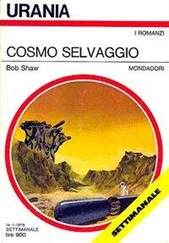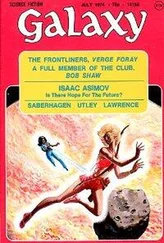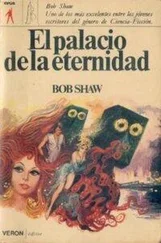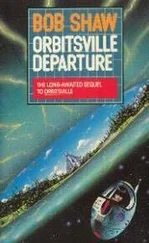He pointed the lettering out to Lorrest. “What does it say?”
“It roughly translates as Peninsular Educational Tours,”
Lorrest said, shaking his head in bafflement. “This grows curiouser and curiouser. One disadvantage of being able to skord from point to point on a planet, the way we do on Mollan, is that kids can grow up with no idea what the territory is like in between. Some educational authorities try to put that right by flying them around in aircraft like this one.”
“What’s it doing here?”
“That’s something else I’d like to know. This is the safest aircraft ever devised—three entirely independent means of staying aloft—so it’s a logical type for a man like Vekrynn to use, but did he steal it? And how did he get it here? I daresay an assembly robot could have put it together for him quickly enough, but he’d have had to skord it out here bit by bit, and that would have taken a lot of his time. I just don’t get it.” Still shaking his head, Lorrest walked right round the aircraft once, then went to a large door forward of the wing. It resisted his attempts to open it. Apparently undeterred, he took out a brown wallet, riffled through its contents with great care and finally removed from it what appeared to be a rectangle of ordinary writing paper. He held the paper in the palm of his hand and pressed it against the aircraft’s skin, close to the door handle, for about ten seconds. Pausing to give Hargate a parodied conspirator’s wink, he tried the door again and this time it swung open immediately, revealing a roomy interior.
“That’s a smart piece of paper,” Hargate commented.
Lorrest nodded, putting the white scrap back into his wallet. “It’s a machine, of course, but I subscribe to the idea that no electronic device is perfect until it’s smaller and lighter than the original design sketch. And, luckily, I know this type of aircraft well. Let’s get you on board.”
“In there?” Hargate was taken aback. “Are you going to fly it?”
Lorrest’s shoulders heaved once before he frowned and clasped his left arm. “No more feed lines like that, please. Naturally I’m going to fly it.”
“But where to?”
“The plan is to fly it to where Vekrynn flies it, and find out exactly what he has tucked away on this planet. It seems an interesting way to pass a few hours.”
“How will you know where he goes?”
“You have just picked out the major weak point in the scheme,” Lorrest said, wheeling Hargate towards the open door. “A lot depends on whether Vekrynn has ever been stupid enough to let the plane take him to his destination under automatic control. If he has, it’ll be fairly easy to duplicate the flight plan; if he hasn’t, if he has always done the flying himself, the job will be a lot trickier. To be honest, it would probably be too much for the equipment I have with me—so keep your fingers crossed.”
Lorrest, again displaying a surprising degree of strength, lifted Hargate and the wheelchair under his right arm and with a single turning movement got them into the aircraft. The interior was a single large compartment, with a pilot’s seat and controls in the nose. Ranged around the sides were chairs, desks and storage cupboards which, despite their distant origin, had an obvious kinship to Terran classroom furniture. As further evidence that children tended to be the same everywhere, many of the desks and adjoining window frames had been drawn on and scribbled on with coloured inks.
Hargate, noticing a small object on one of the desks, rolled himself closer to it and found the stub of a perfectly ordinary pencil, the ends of which showed unmistakable signs of having been chewed. Intrigued, he picked the pencil up, but dropped it immediately when its outer casing crumbled into yellowish dust, suggesting that it could have been lying there for centuries. It came to him that no amount of similarities between Terran and Mollanian children could outweigh the fact that the latter measured their life expectancies in millennia. The disparity was something he had been too busy to brood upon, but now the sheer unfairness of it darkened his mind and mood. He turned and wheeled himself to the front of the aircraft, where Lorrest had knelt down and was beginning to remove panels from the control console.
“Is it true what Gretana told me?” he said. “Do people on all the other human worlds live for seven hundred or eight hundred years?”
“That’s the norm.” Lorrest continued working as he spoke. “Seven or eight centuries.”
“The first part of our Christian Bible quotes figures like that. It says that Methuselah clocked up nearly a thousand years—do you think that’s the way it might actually have been?”
“I doubt it,” Lorrest said abstractedly. “That implies that something happened quite suddenly some thousands of years ago to degrade Terran biomechanisms, and it doesn’t seem likely to me. I’m more inclined to believe it has always been that way. I’d blame it on the…”
“The Moon! Unstable lunar influences!” Hargate squirmed in his chair. “When you get on to something you really stick with it, don’t you?”
“It’s the only way, my friend.” Lorrest smiled as he again opened his wallet and selected a rectangular scrap of paper from a slim bundle. “I’ll bet you anything you like that Vekrynn doesn’t even know that tools like this exist.”
“Is there anything about us that you can’t blame on the Moon?”
“His mind is as stagnant as Mollanian technology itself, and that’s saying something.”
“How about the shape of our heads? Or the smell of our socks?”
“The design of a Mollanian artifact can remain unchanged for thousands of years. If it weren’t for organisations like 2H there’d be virtually no creative thinking.”
“Scrotum fillers to you,” Hargate snapped, wheeling his chair away. He positioned himself at the rear of the cabin, scowling, refusing to acknowledge the wave Lorrest gave him a minute later when the aircraft’s door swung itself shut. He expected to hear engines starting up, but within a few seconds there was a change in the quality of light streaming in through the windows and he realised the aircraft was rising vertically, in total silence. At a height of about a hundred metres the movement was translated into horizontal flight and the landscape began to flow beneath with increasing rapidity.
Hargate studied the complex of geographical features. The incredible clarity of the air seemed to suspend the rules of perspective, creating a new kind of space in which distant peaks perched confusingly on the slopes of nearer mountains, and in which remote blue seas hung in flat suspension above middle-ground lakes. He tried to visualise what they would find at the end of the flight—a secret pleasure dome, perhaps, or a simple hermitage—but the wealth of microscopic detail quickly became numbing to the mind, making it expedient for him to turn his attention to the aircraft’s interior.
“How old do you reckon this flivver is?” he said to Lorrest, reopening communications.
“Five or six centuries at the most,” Lorrest replied. “After that you start getting too many structural failures and it’s easier to switch to a new machine.”
“I see.” Intrigued by the possibility that the aircraft had been ferrying Mollanian children around their world at the time of Columbus, Hargate prowled about the cabin, opening drawers and lockers, occasionally discovering traces of occupation. In one place he found a small engraved bracelet, in another a magnifying glass—apparently commonplace objects which, because of their origins, he saw as archaeological treasures, worth stowing away in his pockets.
He had almost completed his meagre plundering when he noticed, tucked into a recess below a window, a complicated metal object which looked like an engineering instrument in some respects and in others like one of the mathematical sculptures he had once constructed for a living. It had a central spine from which sprouted numerous slim telescopic rods, all finely graduated, terminating in a glittering strip of silver. Hargate stared at it with a greedy quickening of his heart, intuitively identifying it as having something to do with Mollanian instantaneous travel. He snatched it from the recess and went forward to where Lorrest was sitting in the nose of the aircraft.
Читать дальше
